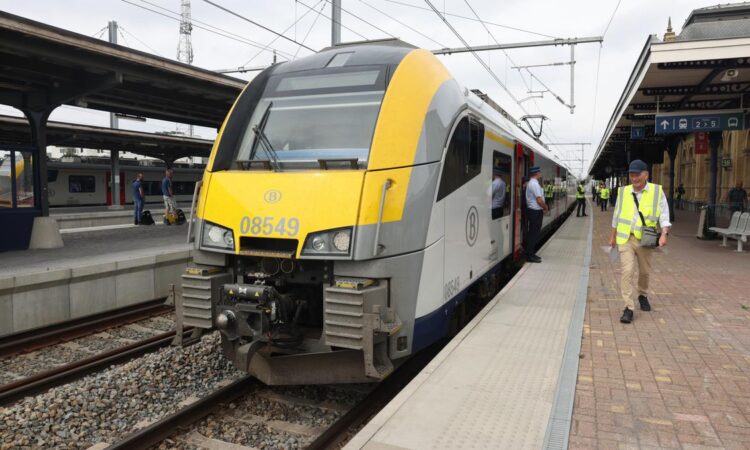
Belgium will receive more than €50 million in EU funding to help develop its train network, including the connection between Brussels and Luxembourg, in the latest effort to complete upgrade work on the line by the end of the decade.
The funding was announced by the European Commission last week, part of a €7 billion package for projects selected for the EU’s Connecting Europe Facility following a call for proposals issued last year.
Luxembourg, Belgium request EU aid for train connection
The scheme aims to build or upgrade transport infrastructure across the EU which contributes to the objectives of the Green Deal and the EU’s sustainable mobility strategy.
Just over €20 million of the funding will go directly to Infrabel, a company owned by the Belgian government, to develop rail infrastructure linking the three EU capitals of Brussels, Strasbourg and Luxembourg.
“The main benefit of the project will be increasing rail competitiveness and providing a faster connection between Brussels and Luxembourg,” states the description of the funding, published in the commission’s list of selected projects.
Brussels train upgrade may be delayed, warns ex-Belgian PM
In addition, Belgian rail company SNCB will receive almost €28 million to equip its rolling stock with the latest-generation ETCS safety system, while Belgium’s network will also benefit from a further package of nearly €8 million under a joint scheme with France and Germany.
Before leaving office last year, outgoing Transport Minister François Bausch re-iterated a promise to cut the travel time between Brussels and Luxembourg to two hours by the end of 2029, in a joint letter signed with his Belgian counterpart Georges Gilkinet.
Outgoing minister renews Brussels train pledge
The current journey takes over three hours, longer than it did four decades ago. In July last year, the entire European Commission travelled by bus to Luxembourg for a meeting with the grand duke.
The upgrade project started in 2007, with €132 million coming from European funds. However, both countries have since squabbled over the cost, which is set to total some €750 million. The works on Luxembourg’s side of the border cost roughly €100 million, Bausch said in 2021.
(This article was first published by Virgule. Translation, editing and additional reporting by John Monaghan.)






